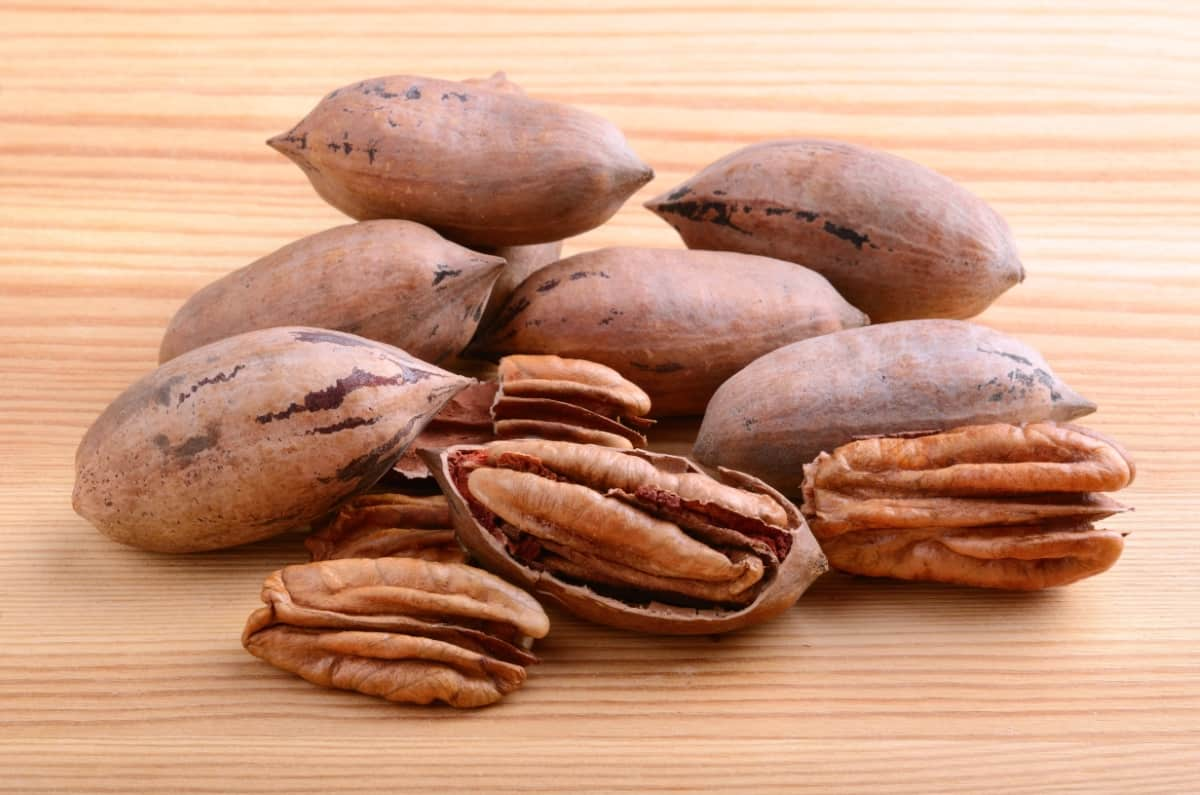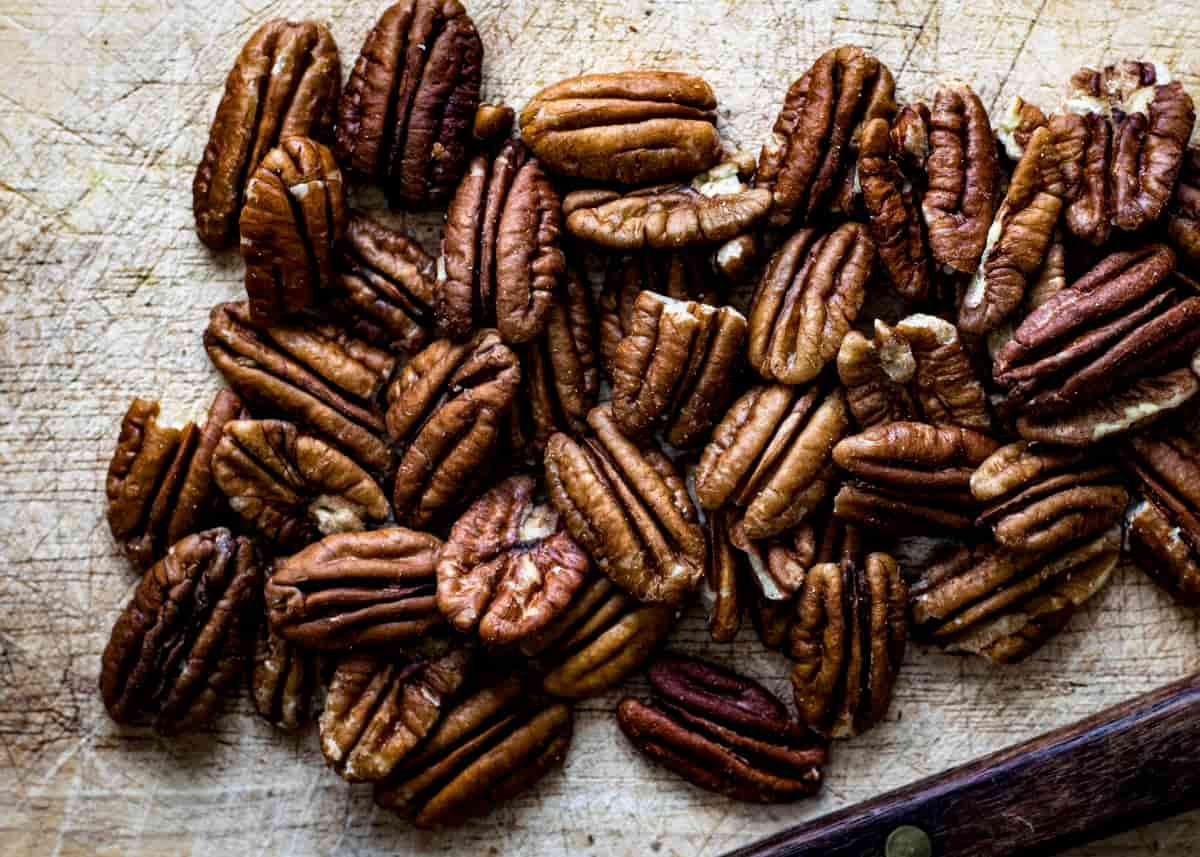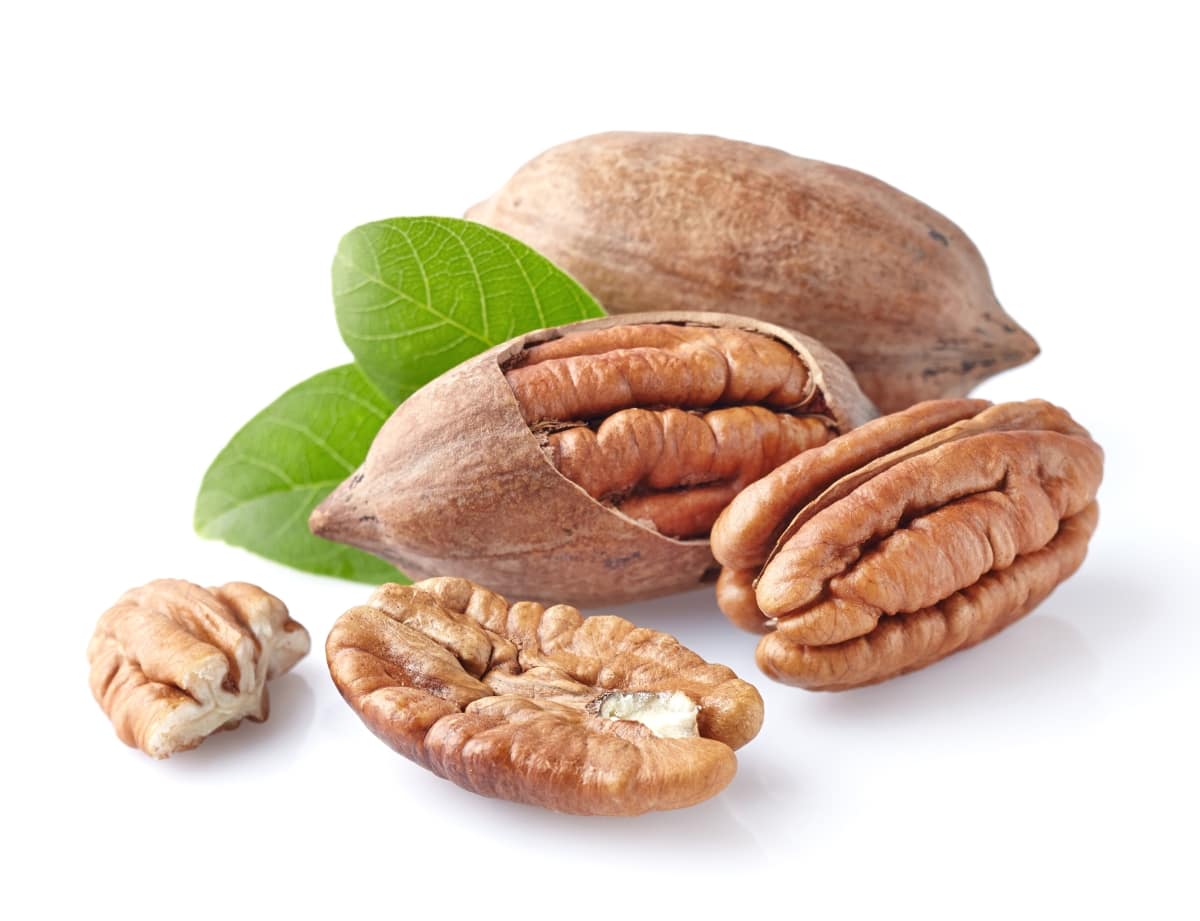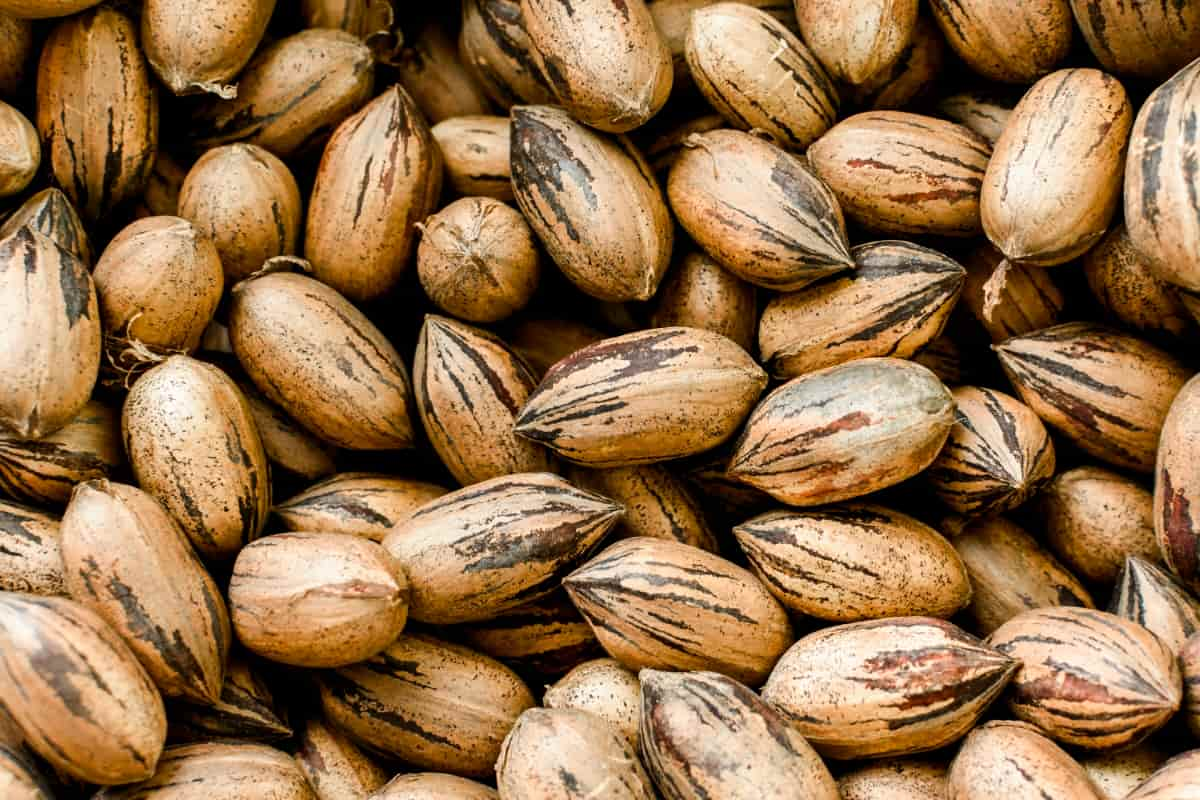Renowned for its fertile soil and favorable climate, Alabama is an ideal location for cultivating pecan trees. Starting a pecan farm in Alabama can be a rewarding venture, both financially and personally. However, like any agricultural endeavor, it requires careful planning, dedication, and knowledge. This Alabama Pecan farming guide aims to provide beginners with the essential information needed to embark on their journey of establishing a successful pecan farm in Alabama.

Pecan Farming in Alabama
Best Practices for Cultivating Pecans in Alabama’s Climate: Pecan Tree Care Alabama
- Selecting Suitable Varieties: Choose pecan varieties suited to Alabama’s climate, such as Desirable, Cape Fear, or Elliott.
- Site Selection: Opt for well-drained soil with pH between 6.0 and 6.5 and good sunlight exposure.
- Planting: Space trees 40-60 feet apart to ensure adequate sunlight and airflow.
- Irrigation: Provide regular watering, especially during dry periods, to promote healthy root development and nut production.
- Fertilization: Apply balanced fertilizers according to soil test results to meet nutrient requirements.
- Pest Management: Monitor for pests like pecan weevils and aphids; utilize integrated pest management techniques.
- Pruning: Prune to maintain an open canopy for sunlight penetration and air circulation.
- Harvesting: Harvest when nuts begin to fall naturally; promptly remove nuts from the ground to prevent mold and pest infestations.
The Economic Impact of Pecan Farming in Alabama: A Detailed Analysis
Pecan farming in Alabama significantly contributes to the state’s economy. The industry generates revenue through both domestic sales and exports, bolstering local agricultural markets. Employment opportunities are abundant, with jobs ranging from farm labor to processing and distribution. Additionally, pecan farming stimulates related sectors such as transportation, packaging, and retail.
The industry also fosters rural development by supporting small businesses and maintaining property values in agricultural areas. Beyond economics, pecan farming plays a vital role in environmental conservation, promoting sustainable land management practices. Overall, the economic impact of pecan farming in Alabama is substantial, driving growth and prosperity across various sectors of the state’s economy.
Innovative Techniques in Pecan Farming for Alabama Growers
- As innovative Pecan Cultivation techniques in Alabama, utilizing precision agriculture technologies, like drones and GPS-guided machinery, allows for precise monitoring and management of orchards, optimizing resource use and minimizing waste.
- Integrated pest management strategies, incorporating natural predators and targeted treatments, reduce reliance on pesticides while maintaining pest control.
- The implementation of drip irrigation systems ensures efficient water utilization, which is crucial in Alabama’s variable climate.
- Growers are embracing genetic advancements, cultivating hybrid varieties tailored to local conditions, boosting resilience and productivity.
- Implementing mechanical shakers for harvesting reduces labor costs and increases efficiency, ensuring a timely and thorough harvest while minimizing damage to trees.
In case you missed it: Alabama Landscaping Ideas for Yards: Budget-friendly, Low-maintenance, and Cost per Square Foot

Understanding Alabama’s Soil and Weather Conditions for Pecan Cultivation
Soil: Alabama’s soil varies across regions but generally consists of sandy loam or clay loam, providing good drainage and nutrient retention essential for pecan tree growth. Ideal soil pH ranges between 6.0 to 7.0.
Temperature: Pecan trees thrive in regions with hot summers and mild winters, making Alabama’s climate suitable for cultivation. However, late spring frosts can damage emerging foliage and flowers, impacting nut production.
Rainfall: An adequate water supply, particularly during the growing season and nut development, is crucial for pecan trees. While Alabama generally receives sufficient rainfall of 56 inches (1,420 mm), supplemental irrigation may be necessary during dry periods.
Humidity: Pecan trees are susceptible to fungal diseases, such as pecan scab, which thrives in humid conditions. Proper air circulation and management practices can help mitigate disease pressure.
Wind: Strong winds, particularly during storms, can damage pecan trees and reduce nut yield. Planting windbreaks or selecting sheltered sites can provide protection.
Growing Season: Alabama typically has a long growing season, which is favorable for pecan cultivation. However, early frosts in the fall can impact nut maturity, so selecting cultivars with appropriate maturity dates is important. Selecting pecan cultivars adapted to Alabama’s climate, such as ‘Desirable’ or ‘Stuart,’ can enhance productivity.
Pecan Pest Management Strategies for Alabama Farmers
Pecan Pest control in Alabama involves monitoring pest populations, using cultural practices such as pruning to remove infested branches, and deploying biological controls like beneficial insects or nematodes. Additionally, employing pheromone traps can help monitor and control pest populations. Chemical control options include insecticides specifically targeted at pecan pests while minimizing harm to beneficial organisms and the environment.
Regular scouting of orchards helps identify pest outbreaks early, enabling timely intervention. Collaboration with agricultural extension services for pest identification and management recommendations tailored to local conditions is crucial. Implementing a combination of these strategies to the specific pest pressures and environmental factors in Alabama can help farmers effectively contribute to Alabama Pecan orchard management.
Harvesting and Processing Pecans in Alabama: Alabama Pecan Harvesting Tips
In Alabama, pecan harvesting typically occurs from late September through November. Once ripe, pecans are harvested either by hand or through mechanical shakers that shake the nuts loose from the trees. After harvesting, the pecans are gathered and processed to remove the outer husks and shells. This can be done using machines that crack the shells without damaging the nut inside. The shelled pecans are then sorted and graded based on size and quality. They may be further processed by roasting, chopping, or packaging for sale.
Marketing Strategies for Alabama Pecan Farmers
Alabama pecan farmers can employ several marketing strategies to promote their products effectively. Firstly, they can leverage the power of digital platforms like e-commerce sites and social media to reach more audiences and showcase their pecans’ quality and uniqueness.
In case you missed it: When to Plant Vegetables in Alabama: Growing Calendar for Northern, Southern, and Central Regions

Collaborating with local markets, grocery stores, and specialty food shops can also help increase visibility and accessibility for consumers. Participating in farmers’ markets, food festivals, and trade shows provides opportunities for direct interaction with customers and allows farmers to educate them about their products.
Financial Planning for Pecan Farming Ventures in Alabama
- Market Analysis: Research current demand for pecans in Alabama and neighboring states. Consider factors like population growth, consumer preferences, and competing suppliers.
- Cost Analysis: Calculate startup costs, including land acquisition, equipment, irrigation systems, and labor. Estimate ongoing expenses such as maintenance, pest control, and marketing.
- Revenue Projection: Forecast pecan yields based on acreage, tree age, and expected growth rates. Consider market prices and potential fluctuations.
- Risk Management: Identify potential risks like weather events, disease outbreaks, or market volatility. Develop strategies to mitigate these risks, like insurance coverage or diversification of crops.
- Financial Projections: Create a financial plan in detail, including income statements, balance sheets, and also cash flow forecasts. Monitor and adjust projections regularly based on actual performance for Alabama Pecan farming profitability.
- Investment Strategy: Determine the optimal financing mix between equity and debt. Explore government grants or loans tailored for agricultural ventures.
- Sustainability: Consider long-term sustainable Pecan farming Alabama practices to preserve soil health, water resources, and biodiversity, ensuring the viability of the pecan farm for future generations.
In case you missed it: Easiest and Best Vegetables to Grow in Alabama: Planting Guide for Winter, Summer, and Spring

Conclusion
Starting a pecan farm in Alabama requires careful planning, dedication, along with hard work, but the rewards can be substantial. By following this Alabama Pecan farming guide for beginners, you can embark on a successful pecan farming venture and contribute to Alabama’s thriving agricultural industry.
- Feed Your Flock for Less: Top 10 Tips to Save on Chicken Feed
- Ultimate Guide to Ossabaw Island Hog: Breeding, Raising, Diet, and Care
- Hatching Answers: The Top 10 Reasons Your Chickens Aren’t Laying Eggs
- Eggs and Economics: Breaking Down the Cost of Raising Backyard Chickens
- Defend Your Greens: Proven Methods to Keep Iguanas Out of Your Garden
- Ultimate Guide to Cinnamon Queen Chicken: A Comprehensive Guide for Beginners
- Ultimate Guide to California Tan Chicken: Breeding, Raising, Diet, Egg-Production and Care
- Ultimate Guide to Marsh Daisy Chicken: Breeding, Raising, Diet, and Care
- 10 Types of Chicken Farming Businesses You Can Start for Profits